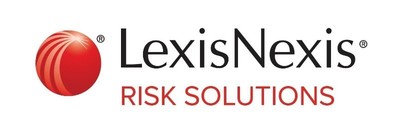Study Reveals Annual Cost of Financial Crime Compliance Totals $61 Billion in the United States and Canada
- Financial crime compliance costs have increased for 99% of financial institutions in the U.S. and Canada, reaching $61 billion.
- 70% of financial institutions prioritize cutting compliance costs in the next 12 months.
- Technology costs related to compliance software and labor have risen, with 79% of organizations experiencing increases in the past year.
- Cryptocurrencies, digital payments, and AI technologies are now being used by criminals for illicit activities, posing challenges for organizations within the regulatory landscape.
- None.
Insights
The report by LexisNexis® Risk Solutions highlights a substantial increase in financial crime compliance costs, which now total U.S.$61 billion for U.S. and Canadian financial institutions. This surge in expenses, particularly in technology and labor, has significant implications for the profitability and operational efficiency of these institutions. The focus on cost reduction by 70% of financial institutions suggests a strategic shift towards balancing regulatory adherence with financial sustainability.
From an investment standpoint, stakeholders should monitor how these cost pressures impact the financial sector's margins. Increased compliance costs can lead to tighter profit margins, which may affect stock valuations. Additionally, the adoption of cost-effective technologies such as AI for compliance purposes could be a differentiator in the market, potentially benefiting companies that leverage these technologies effectively.
Moreover, the rise in technology costs associated with compliance and KYC software indicates a growing market for fintech and regtech solutions. Investors might look for opportunities in companies that provide innovative compliance solutions that can help financial institutions manage their growing expenses.
The escalation of financial crime regulations and the intensifying sanctions environment are major contributors to the compliance cost increases. This reflects a broader trend of heightened regulatory scrutiny within the financial sector. Financial institutions must navigate these complexities to avoid legal repercussions, which can include hefty fines and reputational damage.
Legal experts play a critical role in interpreting these regulations and ensuring that institutions' compliance frameworks are robust. The focus on reducing compliance costs should not compromise the effectiveness of these programs. Investors should be aware that any failure to comply with regulatory standards can lead to legal challenges that may have severe financial consequences for the institutions involved.
The study indicates an evolution in criminal methodologies, with the adoption of cryptocurrencies, digital payments and AI technologies for illicit activities. This presents new challenges for financial institutions in terms of monitoring and preventing financial crimes. Cybersecurity measures must evolve to address the sophisticated tactics employed by criminals, which in turn increases the complexity and cost of compliance.
Investors should consider the cybersecurity posture of financial institutions as a critical factor in assessing risk. Companies that invest in advanced cybersecurity and fraud detection systems may be better positioned to mitigate these risks and manage compliance costs effectively. This could have a positive impact on their long-term viability and attractiveness to investors.
True Cost of Financial Crime Compliance Study Reveals Organizations Prioritizing Cost Reduction While Ensuring Regulatory Adherence
- Financial crime compliance costs have risen for
99% of financial institutions 70% of financial institutions prioritize cutting compliance costs in next 12 months- Cryptocurrencies and AI techniques are now being adopted by criminals as tools for illicit activities
Mid and large-sized financial institutions (holding more than
The challenge of keeping up with the complex sanctions environment is intensifying, leading financial institutions to confront a growing screening workload. At
Key findings from the study:
- Technology costs are driving increases in expenses for financial institutions, emphasizing the substantial investment required to meet stringent compliance requirements. Specifically,
79% of organizations noticed rises in technology costs related to compliance/know-your-customer (KYC) software in the past 12 months, while technology costs associated with networks, systems and remote work have increased at75% of businesses. - Seventy-eight percent of small financial institutions witnessed higher increases in compliance costs related to labor compared to their mid and large-sized counterparts (
63% ). Conversely, mid and large-sized financial institutions were more likely to experience higher cost escalations for technology, particularly in compliance with KYC software (82% ) and external costs associated with outsourcing (79% ). - Cryptocurrencies, digital payments and AI technologies are now also emerging as tools for illicit activities. Organizations are grappling with the impact of these sophisticated criminal methodologies within an already complex regulatory landscape. When asked about the types of financial crime they had observed significant increases of more than
20% in the past 12 months,22% of companies identified financial crime involving cryptocurrencies, while22% reported heightened use of AI.
"As the cost of financial crime compliance rises for organizations across the
Recommendations for combating financial crime:
- Balance compliance effectiveness with customer experience. Financial institutions are grappling to acquire and retain customers in the digital era. The winners will be those that can deliver seamless customer onboarding and transaction experiences. Striking the right balance between customer experience and financial crime compliance efficiency involves streamlining KYC and onboarding processes, reducing false positives and allowing legitimate transactions to proceed without inconveniencing the customer.
- Embrace new technologies to counter emerging financial crimes. Criminals are increasingly using new technologies for their activities. To outpace cybercriminals and counter their more sophisticated financial crime, in addition to deploying advanced AI- and ML-based compliance models, financial institutions should leverage privacy-preserving technologies and advanced analytics to swiftly identify new crime patterns.
- Employ compliance tools and analytics to manage costs and enhance efficiency. Labor costs rank highest in financial crime compliance spending. While in-house compliance teams with expertise are crucial, partnering with an external technology provider will alleviate some labor costs and enhance compliance efficiency. To identify the right partner, organizations should focus on their future-fit capabilities, including proven expertise in digital financial services, ease of integration, robust data management, advanced analytics, lightweight software-as-a-service deployments and the ability to balance effectiveness with customer experience.
Download the latest True Cost of Financial Crime Compliance Study –
Methodology
Forrester conducted a global online survey of 1,181 senior decision-makers at financial institutions to evaluate the cost, current state and challenges presented by financial crime compliance operations. The study began in May 2023 and was completed in June 2023. One hundred sixty (160) survey participants were from the
About LexisNexis Risk Solutions
LexisNexis® Risk Solutions harnesses the power of data, sophisticated analytics platforms and technology solutions to provide insights that help businesses across multiple industries and governmental entities reduce risk and improve decisions to benefit people around the globe. Headquartered in metro
Media Contact:
Ade O'Connor
+44 7890 918 264
ade.o'connor@lexisnexisrisk.com
![]() View original content to download multimedia:https://www.prnewswire.com/news-releases/study-reveals-annual-cost-of-financial-crime-compliance-totals-61-billion-in-the-united-states-and-canada-302064989.html
View original content to download multimedia:https://www.prnewswire.com/news-releases/study-reveals-annual-cost-of-financial-crime-compliance-totals-61-billion-in-the-united-states-and-canada-302064989.html
SOURCE LexisNexis Risk Solutions








